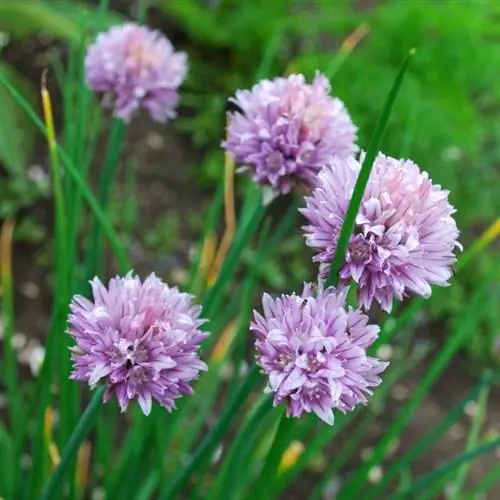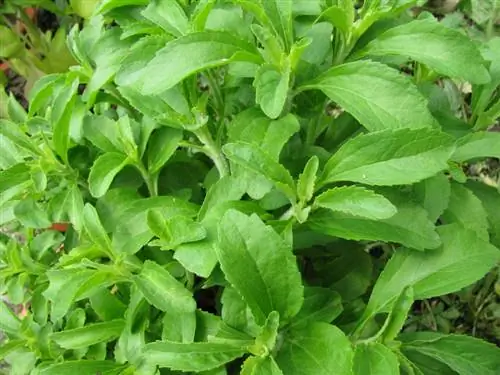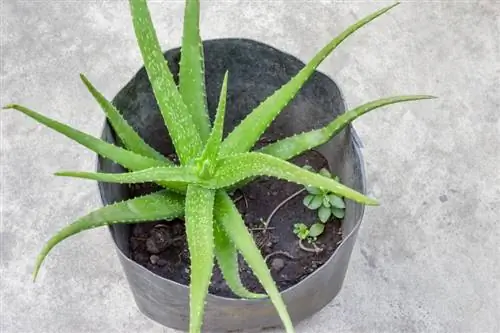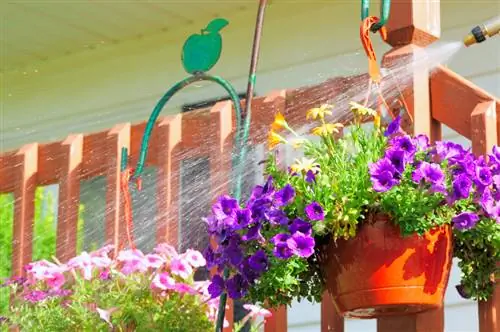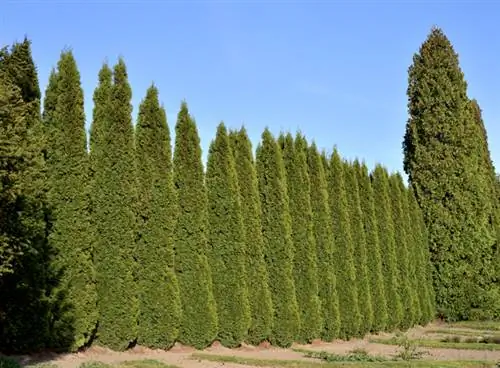- Author admin [email protected].
- Public 2023-12-16 16:46.
- Last modified 2025-01-23 11:20.
Chives (Allium schoenoprasum) belongs to the leek or onion family and was originally native to mountainous regions. The plant, up to 50 centimeters high, develops tubular, hollow leaves that grow directly from the bulb. In contrast to many other popular culinary herbs (e.g. parsley or basil), it is a perennial seasoning and medicinal herb.
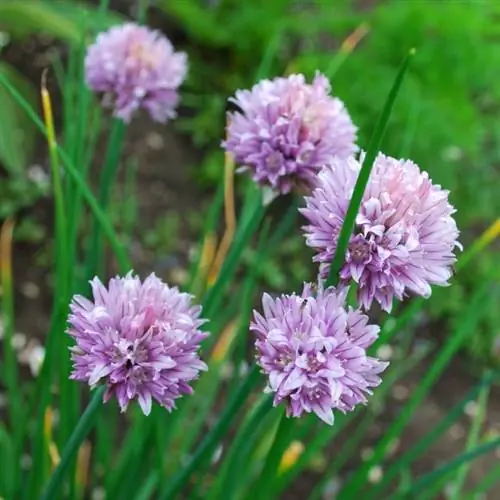
Is chives perennial or annual?
Chives (Allium schoenoprasum) is a perennial plant that can live up to 20 years or more if cared for well. Regular dividing and cutting keeps the plant aromatic and he althy.
Chives can get very old
Many culinary herbs, especially one- and two-year-olds, should, if possible, be assigned a different place in the garden every year. Not so with the chives. This herb can remain in the same location for many years, even decades. What many herb lovers don't know: Allium schoenoprasum, as chives are called in botanical terminology, is a perennial plant that can live for 20 or more years if well cared for. Therefore, it is not necessary to sow chives every year. On the one hand, because the hardy herb can easily survive cold winters and on the other hand, because existing plants can be propagated quite easily by division.
Share chives
That's exactly what you should do regularly: divide chives. In this way, on the one hand you prevent the herb from overgrowing your garden and on the other hand you ensure a rejuvenation treatment and thus strong, aromatic plants. In addition, the division corresponds to the natural reproduction of chives, which - like many onion plants - reproduce most easily in this way.
Cut chive plants regularly
Furthermore, chives should not only be pruned regularly during the harvest, otherwise the stalks quickly become yellow and inedible. Cut the stalks down heavily in autumn - ideally before the first frost - and cover the planting site with brushwood or leaves to protect the roots from the cold. The plant will sprout again quickly in spring. You should also prevent chives from blooming by cutting them frequently, otherwise they can no longer be used.
Tips & Tricks
Chives have quite high nutrient requirements and should therefore be fertilized regularly. Organic fertilizers are ideal because they do not restrict the edibility of the herb - in contrast to some synthetic fertilizers. It is therefore best to fertilize chives with manure (€12.00 on Amazon), compost or even coffee grounds - but be careful! Although coffee grounds are perfect for herbs, they should not be used too often - they make the soil acidic.

